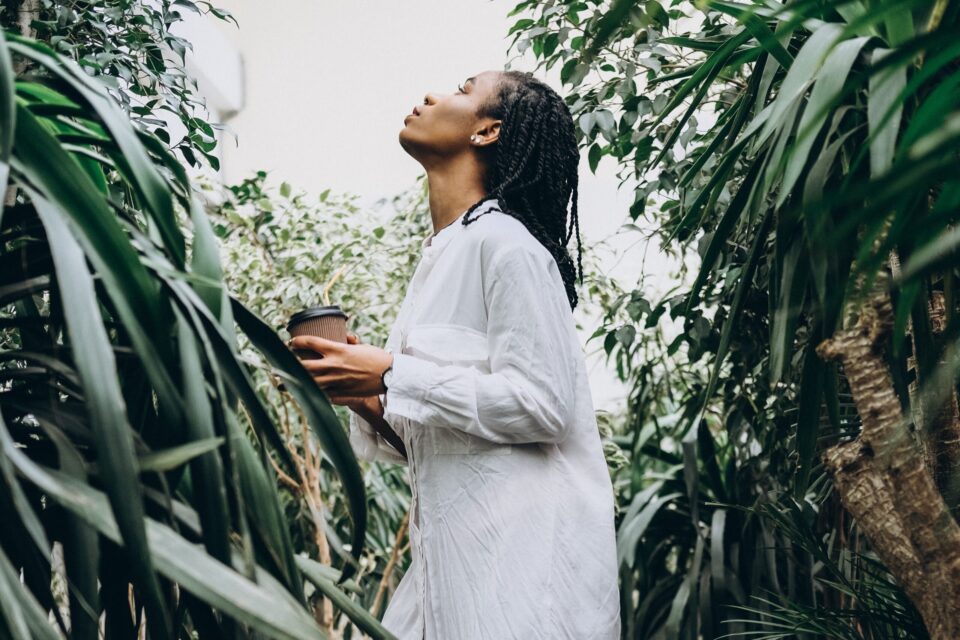Have you ever felt a quiet longing for something deeper than everyday life, yet found that traditional religion doesn’t quite fit? You’re not alone. A growing number of us are drawn to the sacred without wanting to be confined by dogma or institutions.
This is what it means to be spiritual but not religious—to honor an inner call for connection, meaning, and authenticity. It’s less about rejecting religion and more about opening to a direct relationship with the mystery of life, guided by both wisdom and lived experience.
The spiritual but not religious path embraces the universal truths woven throughout all the world’s traditions, but doesn’t require that we fit into any particular box. We have spiritual freedom and a sense of “I am” that arises from within, not without. Yet this freedom, while liberating, also leaves many of us spiritually adrift without a defined path.
What Does Spiritual But Not Religious Mean in Daily Life?
Being spiritual but not religious isn’t about choosing a “smorgasbord” approach to spirituality or settling for superficial love and light. It’s about cultivating a direct, personal relationship with something bigger than yourself without requiring institutional intermediaries.
For me, living spiritually but not religiously means four practical things:
Knowing I’m part of something bigger than myself – This opens me to intuition, synchronicity, and understanding how the universe works in mysterious and meaningful ways.
Understanding we’re all connected – We’re truly one, and a change in one affects all. We each have our unique roles, but we’re not separate from each other.
Cultivating qualities of the heart – Developing compassion, forgiveness, kindness, gratitude, patience, and acceptance as a way of being, not just concepts.
Living with meaning and purpose – Finding deeper significance in life that goes beyond material success and connects to something greater than our individual desires.
This isn’t intellectual spirituality—it’s lived, embodied practice.
Two Spiritual Paths: Surface vs. Depth
The spiritual but not religious path leads people in one of two directions.
One path promises “love and light” through crystals, affirmations, and positive thinking—spiritual practices that can feel uplifting but often lead to bypassing the real inner work of transformation.
The other is the deep, long, and mysterious path that requires you to embrace your shadow, heal your wounds, and commit to daily practices that bring more light into your life by going deeper. In other words, it’s a lot of work!
As we explore both paths, we begin to sense that the true spiritual journey is the one that takes us deeper. While more challenging, it’s where we find genuine meaning and moments of joy.
The hard stuff is where the gold is. It’s where we truly find and connect with our authentic selves.
Our deep spiritual path lives in the messy arguments with our spouses, the difficult person at work, the soul-sapping job, the teenager that keeps us up late at night worrying. I believe in a spirituality grounded in our everyday lives—one that takes us deeper, not higher, fulfilling our soul’s need to grow and evolve into who we truly are.
My Journey: From Spiritual Desert to Sacred Discovery
For me, this path evolved organically, guided by inner wisdom rather than inherited tradition. I didn’t grow up in a home that valued religion—we never talked about spirituality, and I only went to church a handful of times.
As a young adult, I married in a church after taking the required classes, though I felt like an imposter. I had my kids baptized when they were born, embarrassingly admitting now that I thought I should. I often wondered why I felt that way when religion wasn’t part of my life. I now realize it was pure fear: What would happen if I didn’t baptize my kids? Was I the wrong person if I didn’t believe in “God?” Would I go to hell when I died? What kind of parent was I for not bringing my kids to church?
When I went through my midlife unraveling, my spiritual life resembled a desert—barren and unexplored. I had no idea what I believed and hadn’t given it much thought.
Then came the perfect storm. I had retired from my beloved nursing career (a mystical gift I received as a little girl), my kids were launched, and I was traveling the world, living what everyone considered “the dream!”
From the outside, everything looked perfect. But my soul felt saturated with material things. Inside, I was asking deeper questions: “Is this all there is? What’s the meaning and purpose of my life? Who am I beyond all these roles that define me?”
Out of nowhere (although soul hunger was slowly creeping up on me), The Universe orchestrated a dark night of the soul that left me lost, confused and stuck because I didn’t even know I had a soul, much less understand what a dark night of the soul meant.
How could I understand what was happening when I had barely set foot in a church and was living in a spiritual desert regarding conscious awareness? It was confusing to navigate without any frame of reference.
I now marvel with embodied knowledge that all our life experiences ripen the spiritual seed inside us.
Let Your Soul Be Your Guide
The mystical thing is that spiritual awakening happens whether we’re consciously aware of it or not. Through this midlife unraveling, I developed a deeper connection with who I am and realized I’m part of something bigger than myself.
In many ways, not having a spiritual or religious background was a gift. I was a blank slate, able to discern as an adult what felt right for me and what didn’t. I didn’t need to strip away layers of beliefs imposed on me when I was younger. My filter was my soul, determining what felt true.
I went from not having spirituality on my radar to being guided by spiritual principles and values in every aspect of my life. Spirituality grew from within, arising from my soul and often leaving me wondering what I should call “It.”
Maybe that’s perfect, because as Lao Tzu says, “The Tao that can be told is not the eternal Tao. The name that can be named is not the eternal name.”
That soul hunger drew me into curiosity about life’s mystery, the universe, and how I could serve something greater. The “something missing” feeling was actually my compass pointing toward deeper meaning.
Common Struggles on This Sacred Path
Being spiritual but not religious comes with unique challenges that rarely get discussed:
Spiritual Bypassing: It’s tempting to view yourself as spiritual because you do spiritual things while avoiding the real inner work of transformation. True depth requires facing our shadows, not just embracing the light.
Hunger for Community: When traditional religious structures are dissolving, where do you find your spiritual tribe? As the esoteric teachings say, our ashram isn’t in India—it’s within us, guided by our own soul. But that can feel lonely for inherently social creatures.
Misconceptions: People sometimes dismiss spiritual but not religious as “fluffy” or lacking rigor. But genuine spiritual work—forgiveness, shadow integration, compassion practice—demands everything of us.
Some Inherit Religious Beliefs That Feel Too Small
Many people I work with carry a different struggle—they’ve grown up with religious dogma and beliefs that no longer nourish them or align with what their soul whispers.
They’re questioning a spirituality that minimizes their life force energy rather than expanding it. I hear them share confusion about outgrowing the “box” of inherited traditional beliefs. They face the fear of leaving communities, shedding fear-based beliefs, and finding their path in the dark, often feeling profoundly alone.
For many, this becomes their own dark night of the soul—a difficult process that gives birth to a new vision and relationship with spirituality. Like all transformations, something must die for something new to be born. It’s a complex time of living in the void, knowing we can’t go back, yet unable to see a way forward.
The Universe’s Perfect Timing
How mystical that the Universe signals when it’s time to make these radical transformations in our lives. It shows us that we’ve drifted away from our true selves, and it’s time to wake up!
I believe we’re witnessing old religious institutions breaking down—much like in any dark night of the soul, structures that confine us must be dismantled for something new to emerge. This new spirituality brings forth the best of ancient wisdom while honoring our direct connection to the divine.
You don’t need to go through a priest or ask someone else for forgiveness—you go directly to the source.
Our soul doesn’t care whether we’re religious, spiritual, or, in my case, on the path of no path. The only thing that matters to the soul is that we follow an approach uniquely ours, one that resonates at the core of our being.
If you identify as spiritual but not religious, know that your seeking is valid and valuable. The hunger for something deeper, the sense that something is missing, the curiosity about life’s bigger questions—these aren’t flaws to fix but invitations to grow.
Whether you’re just beginning to explore spirituality or you’re deep in your own spiritual unraveling, remember that the path itself is sacred. Your direct connection to something greater doesn’t require anyone else’s approval or validation.
What resonates most with you about the spiritual but not religious path? How has your own spiritual curiosity been calling you deeper?



This was excellent! I too am a former nurse turned SAHM of twins. Turned 40 and 4 months later had a spiritual awakening/crumbling. I was initially on a spiritual high of sorts and have spent the last year living in resentment and obsessing over inner child shadow work. I feel like I need a break. I know that somehow I’m getting in my own way. Never been more lost. And yet, when I tap in and read articles like this, I feel that initial awakening come back to me. The synchronicities, the connection, the vibrations. But the day-to-day is an absolute struggle. Just wanted to say thank you. Dark night of the soul (if that’s what I’m experiencing) is brutal. And there is a part of me that feels I keep manifesting more negativity because of this mindset!
Hi Meg,
I’m grateful to hear that this article resonated with you. I too went through what I came to view as a “honeymoon” phase in my awakening before the resentment and hidden parts of me began to surface. The DNOS is brutal and at the same time it’s deeply meaningful. It’s also very true that our mindset plays a big role in how we navigate it. I also found that my mindset was one thing I was called to transform through the transition. Much love and again I’m glad you found some inspiration here! Bev